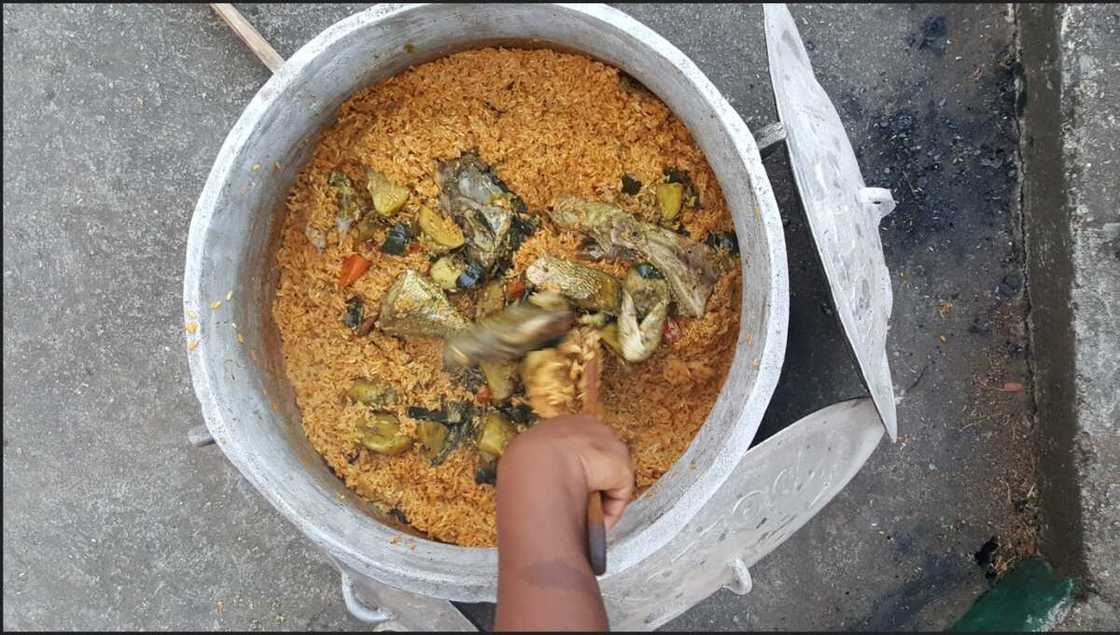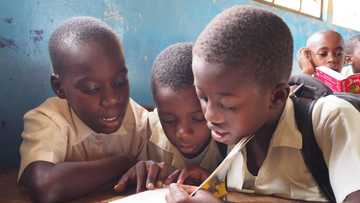Analysis Shows Family of Four now Needs at Least N10,000 to Prepare a Pot of Jollof Rice
- Jollof rice is one of Nigeria's most popular meals that cut across every tribe and ethnic group in the country
- Households are now being forced to make difficult decisions due to the growing cost of basic ingredients used to prepare the meal
- The rising expense of making one of Nigeria's most famous dishes reflects how overburdened Nigerian households have become in recent years
PAY ATTENTION: Click “See First” under the “Following” tab to see Legit.ng News on your Facebook News Feed!
Poor Nigerians continue to bear the brunt of rising food costs, with a pot of one of the country's most famous dishes, Jollof rice, now costing at least N10,00 to prepare for a family of four.
This is a 39.3% or N2,913 increase over the N7,401 paid in January 2017 for the same components.
The estimated cost were arrived at analyzing the average cost of ingredients featured in the National Bureau of Statistics August 2021 selected food price watch report released on Tuesday, September 21, 2021

Read also
Naira firms up at official market but loses at the black market, exchanges at N602 per dollar

Source: Depositphotos
PAY ATTENTION: Subscribe to Digital Talk newsletter to receive must-know business stories and succeed BIG!
These ingredients include a combination of rice, tomatoes and tomato paste, onions, cooking oil, meat, chicken, beef.
According to the NBS data, each of the aforementioned items prices weight at I kilogram increased at least by 30% in the last four years.
Rice
For example, one kilogram of local rice sold for N286.19 in January 2017 was sold for N409.97 in August 2021.
The price of imported Rice also increased in August to N546.71 from N402.01 it was sold at the start of 2017.
Tomatoes
Tomatoes, another important ingredient recorded a significant increase to N396.38 from N247.55 it was sold in 2017.
Onion
Onion bulb an important spice for making the Jollof also increased from N258.92 to N302.88.
Vegetable oil
Vegetable oil households will have to pay N769.45 for a bottle compared to the N495.29 it was sold in 2017.

Read also
Exercise Books, Textbooks, other Print materials to Become more Costly as Cost of Paper Imports hit N1.23trn
Chicken
Chicken feet and wings also increased from N768.11 and N886.58 four years ago to N819.03 and N1080.13 respectively in August 2021.
One Kilogram of frozen chicken also rose to N2,091.34 in August from N1,419.75 it was sold in January 2017.
When the figures for each of the items are summed up, it comes to at least N10,000.
In a similar analysis, carried out by SBM Intelligence a research firm, as at end of June, the average cost of preparing a pot of jollof rice rose to N7,618.
The firm noted which surveyed cost of food items at Onitsha, Port Harcourt and Calabar Municipal markets said the cost of beef, onions and tomatoes key ingredients all increased due to rising insecurity.
Legit.ng weekly price check
In a similar development in August 2021, legit.ng carried out a market survey to find out from traders the recent cost price of goods and what are influencing the purchasing power of buyers.
A food items dealer at one of the market visited explained to Legit.ng that the cost price of rice, beans and garri are determined by their availability.
One of the traders who sells frozen foods in the market laments the low purchasing powers of buyers in recent times. She noted that the buyers opt for live chicken rather than frozen ones.
Source: Legit.ng


